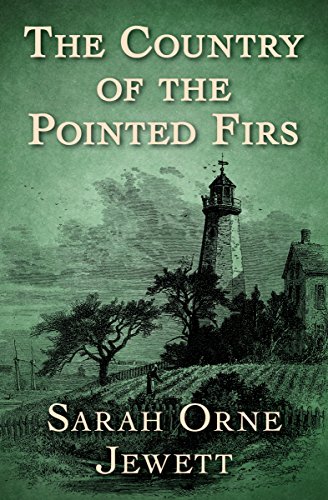My only familiarity with Sarah Orne Jewett was from reading her story "A White Heron" in a class many years ago. Another woman author often dismissed as "local color" rather than realism, Jewett has been, I think, unfairly ignored, until the more diverse canon came into being after the 1950s, for Jewett is every bit as good a writer as most of the others of her time. She fits in well with the naturist/realist/localist writers of the time. The introduction to the version I read even went so far as to say that she was doing realism before Howells and others started to do so and before it had a name. This may be a stretch, given that Howells's major book predates Jewett's major work.
Jewett's writing reminds me most of the nature writers of the late nineteenth century. Her characters often go out to the woods and commune with it, find something from it, and return to the world refreshed. There is much attention to what exactly they see, as if Jewett herself had a nature guide with her when she wrote the story or traversed the hills (likely, she knew more about which species was which than I do--I'm the one that would need the book). "A White Heron" fits this perfectly. Initially the story of a girl who meets a boy who likes to hunt and "falls" for him, "A White Heron" becomes a story about a girl who falls for nature instead.
The Country of Pointed Firs--a work I'd long assumed was a short story because of its constant pairing with "other stories"--is actually a novella of quite some length. It tells the tale of a woman who goes to visit Dunnet Landing, a seaside town in Maine. As in much of Jewett's work, nothing much seems to happen. The woman meets locals, talks with them, hears their stories about this person who died or about how the current generation isn't as tough as the previous or how all the sailors have gone away, walks into nature by herself or sails there, collects herbs, learns about herbs from the woman she lives with, and so on. And yet, by the sheer beauty of her language, Jewett moves us forward, compelling us to read lazily on. And we do. And when summer comes to an end and fall makes its full claim on the senses and the visitor must go away, we too are sad. It's like we're leaving a town we've spent the summer in. And that is not an easy thing to achieve in mere words.
The collection I read included the novella, four other Dunnet Landing stories, and four random classic stories by Jewett. The novella is the main feature for good reason, as it introduces all the major characters and is probably the best of the works in the collection, save perhaps the classic "A White Heron."
Subscribe to:
Post Comments (Atom)







No comments:
Post a Comment